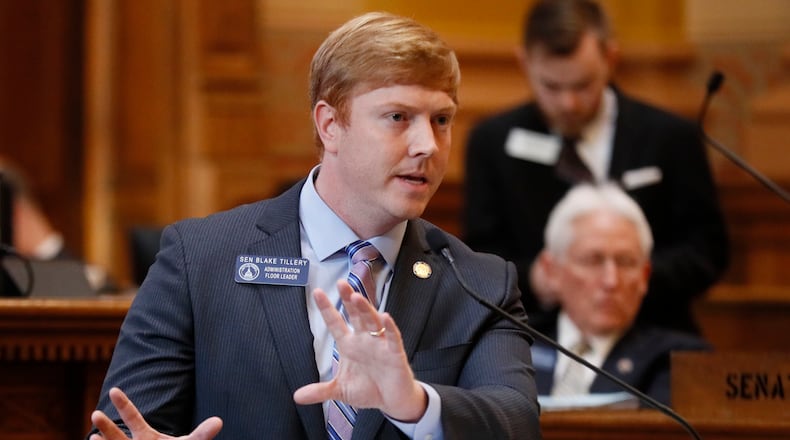The Georgia Senate passed a budget Tuesday to fund the state through June 30 that increases spending on education and public health.
The Senate’s midyear budget for fiscal 2021 — which hikes spending by $654 million — backs increases that the House passed last week. The Senate’s 52-0 vote sets up what will likely be quick negotiations with the House to come up with a final deal.
The largest increase is in education, where the House and Senate went along with Gov. Brian Kemp’s proposal to backfill 60% of the spending reductions lawmakers approved last year, when they cut 10% because of fears that state revenue would plummet due to the COVID-19 pandemic.
That didn’t happen. In fact, state tax collections have increased this fiscal year.
The House and Senate agreed to push through a midyear budget in case they have to suspend the session — as they did in March — because of the pandemic.
Senate Appropriations Chairman Blake Tillery, R-Vidalia, said the Senate went along with key additions to the budget made by the House.
They included paying for 500 new school buses and increasing support for nursing homes hit hard by COVID-19. The Senate also backed Kemp’s proposals to add high-speed internet in rural areas and provide 10% raises for corrections and juvenile justice guards.
Kemp and lawmakers have faced criticism in recent weeks for not boosting state funding for the Department of Public Health before and during the pandemic.
House budget writers added money for a chief medical officer, deputy commissioner and chief data officer, plus $18 million to quickly modernize the computer system that tracks immunizations. The Senate increased that to $27 million, and it added positions for a senior programmer and a financial manager.
Still, Senate Minority Leader Gloria Butler, D-Stone Mountain, said the state should be putting more money into public health care and increasing efforts to vaccinate teachers.
“I believe we could have done more, we should have done more,” Butler said.
About the Author
Keep Reading
The Latest
Featured




